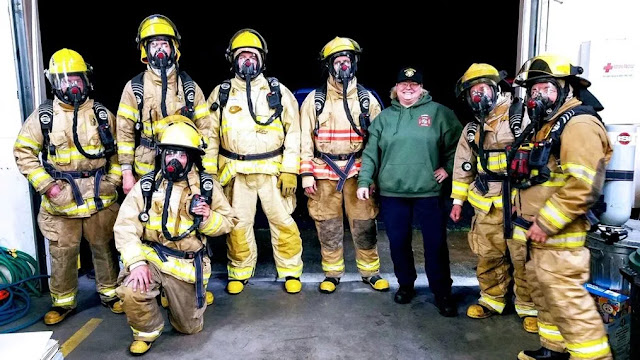In a laboratory in Manchester, volunteers wear veils to draw lungs of contaminated air.
They are exposed to different types of fumes, from diesel to cleaning products, in an attempt to understand what the contamination means to the brain.
Scientists dissect blood tests and the implications of mental tests that were administered while open.While it is notable that air quality affects the lungs and cardiovascular system, the mind is less studied.Dr Ian Mudway, a natural toxicologist at the Magnificent School London, is one of the researchers leading the review.
“In the course of recent years, we've started to see a factual relationship between air contamination and a whole range of brain-related problems – possibly from how children learn, how their discernment changes, to emotional well-being and widespread dangers. dementia.
"What we're trying to do in this study is really investigate to understand why there is a relationship, to find out what are the underlying organic components that link air contamination to adverse effects on the human mind."
Manchester Laboratory
The tests are being carried out at the College of Manchester, where researchers are testing four different types of contamination: diesel fumes, wood smoke, cleaning products and cooking exhaust (produced by burning pork in a smokehouse).
Contamination levels are carefully estimated and checked, at which point it is transferred to an airlock—essentially a plastic bag the size of a room—and taken to the workers to be admitted inside.
Members come to the lab on many occasions for more than a moment, and are exposed to alternating pollution or clean air for 60 minutes each visit. They never understand what they are taking while the analyzes are going on.
Professor Gordon McFiggans
Professor Gordon McFiggans, of the College of Manchester's Middle for Climatic Science, says the key point is to sort out the hazard associated with each poison - indoors and outdoors.
"There is a lot of evidence that indoor air contamination can actually be more dangerous than outdoor air contamination," he understood.
“Also, if you open a window or have mechanical ventilation, you can let poisons in from the open air, plus indoor contamination to the outside, so there's a whole range of openings for everyone to get into.
"Furthermore, I think what we want to do is have a complete direction to people so that they are informed about the possible outcomes of different kinds of proposals for their well-being."
Cerebrum tests
The group says brain tests are an immediate way to look at mental abilities, while natural examples can reveal what's going on with the body.
"We believe we should understand the pathways by which contamination actually affects the mind," says Professor McFiggans.
He says the group needs to interpret the possibility that the contaminations are directly entering the mind or whether it is an aberrant impact. One chance is that the contamination causes deterioration in various parts of the body, such as in the lungs, and the synthetic compounds created by this organic cycle then proceed to the brain at that point.
"Right now, we just don't have the foggiest idea," he says.
Dr Ian Mudway says more testing is needed on contamination and the brain
The World Wellbeing Association states that the vast majority of the world's population receives air that is as high as possible in excess of common airborne poisons, and the combined effects of outdoor and indoor air contamination consistently add up to 7,000,000 unexpected losses.
The group says it's crucial to really see what contamination means for mental well-being.
In addition, although the review appears small from the outset – involving 13 individuals – it is one of the largest investigations of its kind. This is because each volunteer is independently exposed to four contaminants (and clean air) and these results are compared and contrasted with each other, and then compared with each other and the consequences of each individual member are assessed to make an investigation that will be measurably huge. .
Bryony Levels is one of those taking part.
She says she's happy to accept contamination for the sake of science - and spends her airlock hours reading a book.
He says: “In case they can get more information about such things, it seems like a really beneficial use of my chance to assist with such a review.
"Anything that should be possible to find out the things that are causing us harm, simply in our normal lifestyles that can be changed, seems really important."










0 Comments